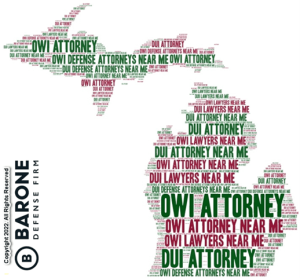Search
Repeat Drunk Drivers in Barry County, Michigan Get Minimum 30 days in Jail
A Barry County Judge has indicated that he’s going to start cracking down on repeat drunk drivers by giving them a minimum of 30 days in jail.
Judge Michael Shipper was appointed by Governor Snyder in 2011 and is already tough on first-time offenders. Now he says he’s ready to be even tougher on repeat drunk drivers. He’s indicated that the 30-day sentences could be spread out over 15 weekends.
In Michigan, a second offense drunk driving charge is appropriate only where the offender has a prior offense within the prior 7 years. If the prior offense is more than seven years old the new offense will be considered a first offense. However, the same is not true for those drivers with two prior drunk driving offenses on their record. Michigan has a lifetime look back for drivers with three or more total drunk driving convictions. These drivers are considered felons and may face up to five years in prison.
 Michigan Criminal Defense Lawyer Blog
Michigan Criminal Defense Lawyer Blog


















